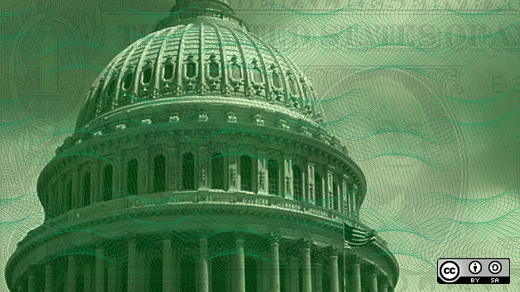A draft executive order from the Obama administration recently surfaced titled “Disclosure of Political Spending by Government Contractors.” If signed and implemented, potential contractors bidding on federal work would be required to disclose contributions and spending two years back.
This would apply to the company seeking the contract itself, its directors, officers and other entities under a bidder's control. Additionally, all the information would be compiled in a searchable and machine-readable format and placed on data.gov.
On paper it’s a now classic government transparency move. Disclose, aggregate, and accessibly publish. But as we’ve seen in other cases, transparency can lead to wildly different interpretations.
Nowhere in the order does it say the information will be factored into procurement decisions. But, that’s where most of the heat has been hitting. And in a preemptive move, the House Homeland Security and Small Business Committees jointly reviewed the draft order Thursday.
Where the (assumed) intention of this is to make it more difficult to engage in pay-to-play or quid pro quo transactions under the radar, opponents in a fit of rhetorical idiocy and brilliance at the same time claim it as codifying political affiliation into procurement decisions.
“Chicago hardball politics,” “hypocrisy,” and “outrageous.”
In the minds of opponents, the status quo (where you can be sure the only people who know about a pay-to-play transaction are the contributor and potential beneficiary) is preferable to transparency.
In the Senate, Mitch McConnell and 26 of his Republican colleagues sent a letter to President Obama with two pages of question after question. McConnell also released his own statement:
“Now, under the guise of ‘transparency,’ the Obama administration reportedly wants to know the political leanings of any company or small business, including those of their officers and directors, before the government decides if they’ll award them federal contracts. Let me be clear: No White House should be able to review your political party affiliation before deciding if you’re worthy of a government contract.”
Here’s the deal though. We already know the “political leanings” of officers and directors when it comes to aiding candidates or committees. If you’ve made a contribution as an individual, anyone can look that up. The same goes for corporations.
Where this Executive Order enters new territory is covering contributions to “third-party entities.” These are the set of non-profits allowed to perform electioneering, think trade associations and organizations like the Chamber of Commerce.
We need to look at some numbers from the Center for Responsive Politics to understand the real motivation. In the last major election these groups dropped $134 million into election communications and activities. $119 million, nearly 90% of that money, went to Republican “allies.”
It’s not necessarily that Republicans like to hide things and Democrats don’t, in this case the prior just happened to be better at funneling money that way, and the latter is playing catchup to build the apparatus. In the past few days, two Democrats, and a kind of Democrat, have jumped on the 'transparency is intimidation' bandwagon, Rep. Steny Hoyer, and Senators Claire McCaskill and Joe Lieberman.
In the wake of the Citizens United Supreme Court decision last year, the reality and expectation is that corporate and nonprofit political speech is expanding and will only become more influential, whereas the now defunct provision in McCain-Feingold previously held it back.
For those in the business of business, disclosure can lead to painful situations like the recent Target Corporation boycott. When the money goes to third parties, it’s a foggy enough relationship that it’s hard to pinpoint what issues or in general what leaning a corporation may have. Even if you can figure it out, there’s always the plausible deniability of ‘we didn’t know our money would be used in that way.’
I’ve worked in the position of opposition research for candidates, vetting potential contributors, and searching for donation activity that might give way to hits in the media. I’ve also been on the corporate side. In general, corporations aren’t stupid. They give pretty equally side-to-side in a method more akin to ensuring access when needed rather than any expectation of favoritism or foul play.
If you’re trying to figure out where the pressure on Congress is coming from, it’s not the corporations, but these third party entities that rely on these contributions as their lifeblood. The US Chamber of Commerce, if you're not familiar with its history and reach has the most to lose and is not going quietly.
The biggest downfall of this Executive Order, in terms of its political susceptibility, is the obvious connection to the procurement function. In reality it has nothing to do with procurement, but the Executive branch not having the powers of the Legislature, procurement is the logical and perhaps the only place for the Obama administration to focus its disappointment with recent developments in campaign finance.
Regardless of political leanings, or other technical issues with this order that will no doubt change as it goes through a review process, it’s important not to let these third party groups co-opt and twist the idea of transparency in government for their own gain.







1 Comment